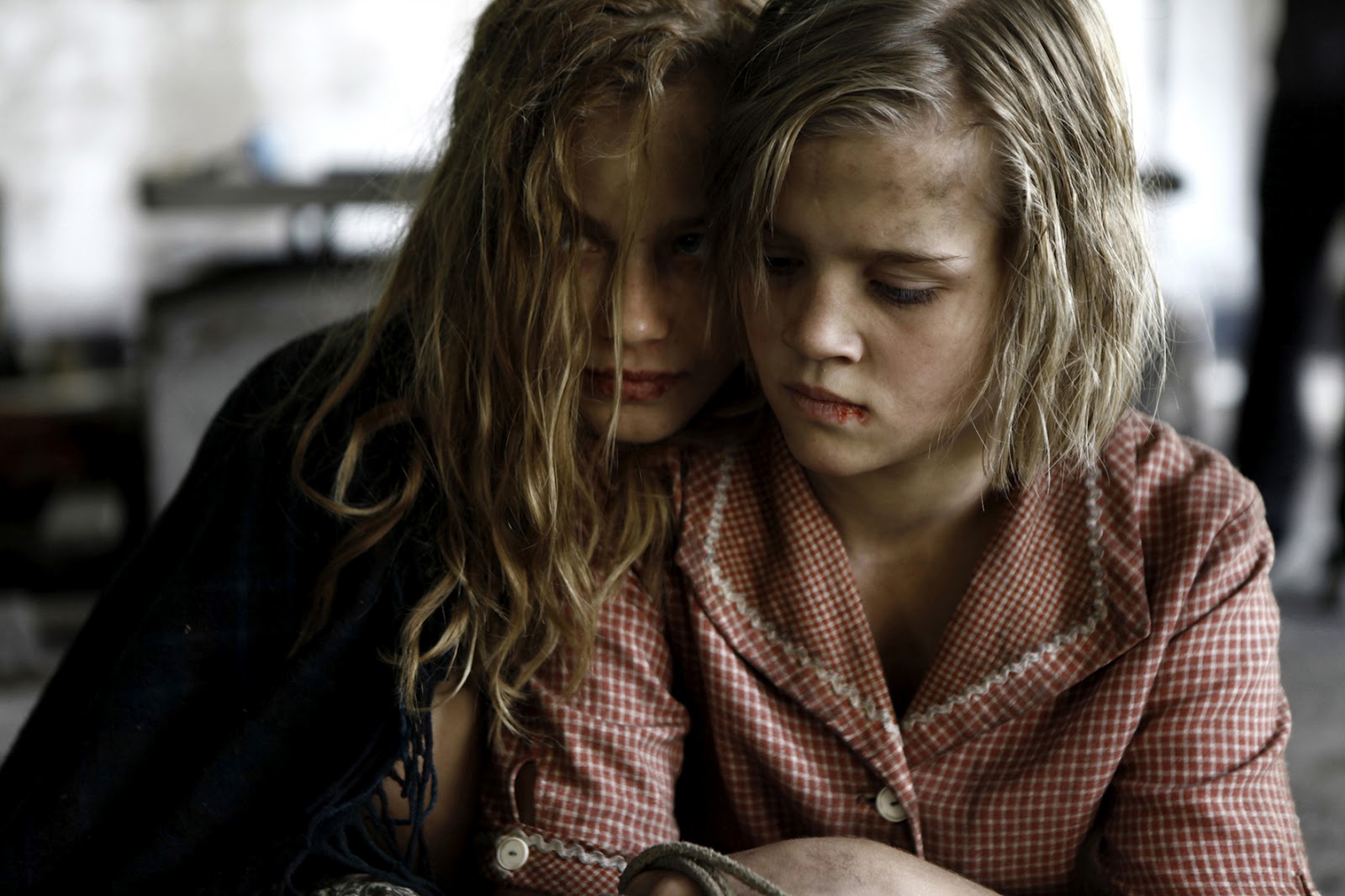Title: Lore
Director: Cate Shortland
Starring: Saskia Rosendahl, Nele Trebs, André Frid, Mika Seidel, Kai-Peter Malina, Nick Holaschke, Ursina Lardi, Hans-Jochen Wagner
The Holocaust is perhaps one of the most frequent film topics, both in the United States and internationally. Most films about the subject take place during the era of Nazi power, many seen from the perspective of the Jews and other victims, and others, such as The Boy in the Striped Pajamas and Good, looking in from the outside. Lore, the 2012 Oscar submission for Best Foreign Film from Australia, showcases the aftermath of the liberation of Germany by American troops as seen through the eyes of the children of a Nazi officer.
Lore (Saskia Rosendahl) is the name of the daughter of Vati (Hans-Jochen Wagner), a Nazi official arrested for his actions during the war. When her mother Mutti (Ursina Lardi) leaves as well to find her husband, young Lore is left to take care of her younger siblings and to help them find their way to their grandmother’s home, a considerable and treacherous distance from the home that they are forced to abandon. Lore’s journey through the woods with her family is a dangerous and violent one, and they are soon joined by Thomas (Kai-Peter Malina), a Jewish survivor of the camps who shows his passport and poses as their brother to American officers to help them escape.
Lore sets itself up from an intriguing and rarely explored vantage point, in which these German children, whose blue eyes and blond hair are impossible to mask, must wander to safety to avoid being punished for the crimes of their parents. Early in the film, Lore asks her mother why she is crying, thinking that her beloved father has been killed. Mutti’s tears are for another man: her Führer. When Lore meets Thomas and sees the yellow star on his passport, she tells him not to touch her family members, since she has been brought up with a vile hatred for the Jews. Whether or not Lore should be blamed for her ignorant cruelty creates an interesting moral debate.
Whatever her feelings for the Jews, Lore does her own share of suffering at the hands of Germans, making ends meet by offering up her possessions and her innocence. When the choice to prostitute herself or to kill the man hindering their passage presents itself, Lore has trouble accepting the horrific nature of the solution she and Thomas must execute, while he remains indifferent and quickly moves past it. At first, Thomas is portrayed as a loitering creep, and only gradually does he become a softer and more positive presence. The vilifying of American troops as invaders and perpetrators of an enormous lie shifts common perceptions, and this story addresses humanity on many different levels.
Lore is most effective in the stark imagery it displays, as Lore and her family travel a muted, bleak backdrop to reach their destination, encountering despair and desolation at every turn. Seeing the reactions of the Germans to images and stories of the camps is startling, mostly because it includes, more than anything else, denial and a charge of falsehood against the accuser. Lore’s role as matriarch to her younger siblings is a conflicted one, as she attempts to shield them from the horrors of her world while not fully comprehending the degree to which events have transpired and devolved. The screenplay uses dialogue sparsely and allows its actors’ body language and facial expressions to speak for themselves. Ultimately, the story reaches no overt moral conclusion, instead leaving its characters and their complicity to the judgment of the audience.
Story: B
Acting: B+
Technical: B
Overall: B
Written by Abe Fried-Tanzer

